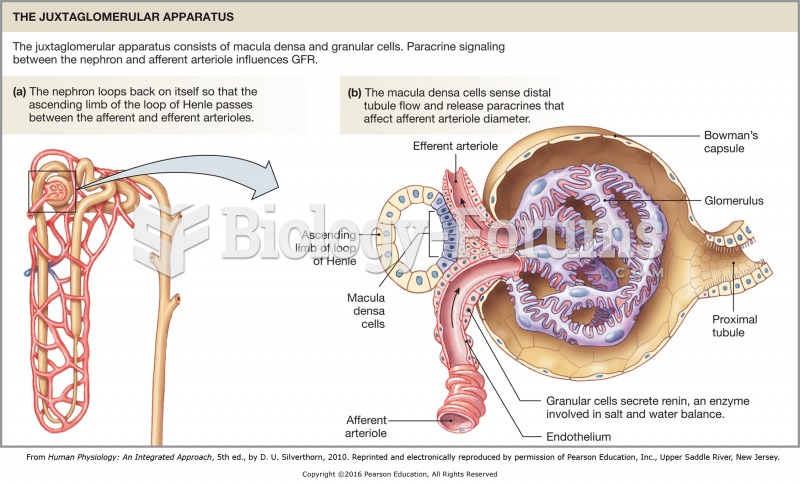|
|
|
Anti-aging claims should not ever be believed. There is no supplement, medication, or any other substance that has been proven to slow or stop the aging process.
Pink eye is a term that refers to conjunctivitis, which is inflammation of the thin, clear membrane (conjunctiva) over the white part of the eye (sclera). It may be triggered by a virus, bacteria, or foreign body in the eye. Antibiotic eye drops alleviate bacterial conjunctivitis, and antihistamine allergy pills or eye drops help control allergic conjunctivitis symptoms.
The newest statin drug, rosuvastatin, has been called a superstatin because it appears to reduce LDL cholesterol to a greater degree than the other approved statin drugs.
Approximately 500,000 babies are born each year in the United States to teenage mothers.
Acetaminophen (Tylenol) in overdose can seriously damage the liver. It should never be taken by people who use alcohol heavily; it can result in severe liver damage and even a condition requiring a liver transplant.
 There are many types of adaptive devices: (A) a toothbrush; (B) a reaching stick; (C) a shoe holder; ...
There are many types of adaptive devices: (A) a toothbrush; (B) a reaching stick; (C) a shoe holder; ...
 Feelings of competence, independence, and relatedness lead to a sense of overall well-being in any ...
Feelings of competence, independence, and relatedness lead to a sense of overall well-being in any ...





